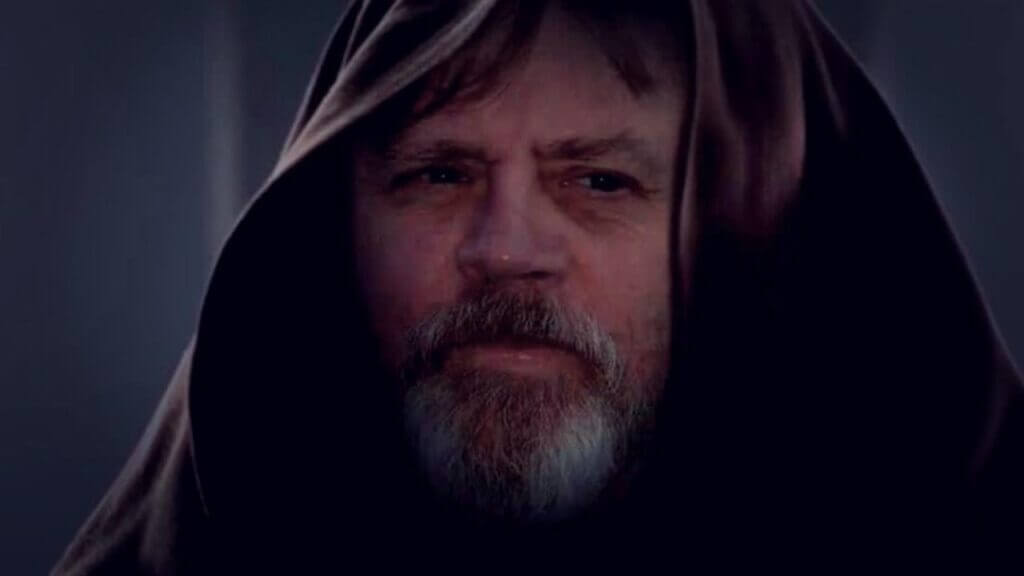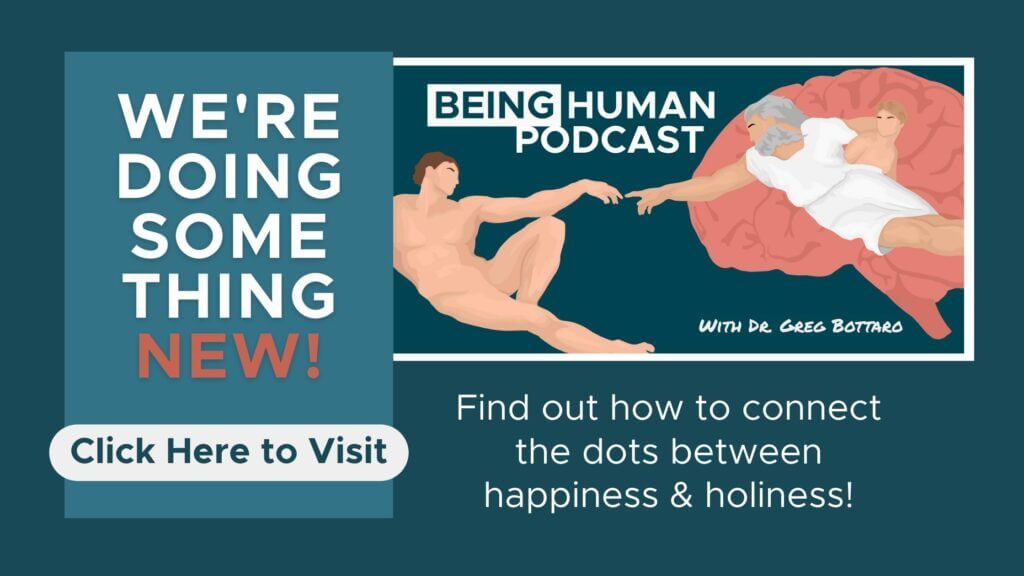
Have you ever considered the psychology of the Star Wars films? I’d like to talk about the different characters in the new film and how some of the dynamics have shifted with male and female leads.
Let’s begin with an “opening crawl” of caveats:
FULL SPOILER ALERT
I’m going to be delving into some of the characters and plot points of Episode 7 from a psychological perspective, so if you haven’t seen it, get to the theater and come back and read!
- I’m presuming that you are at least somewhat familiar with the franchise and can recall some of the major details of the earlier episodes.
- I loved the film. It is refreshing to have Star Wars back on the silver screen as a cultural exposition for us to reflect on.
- I think Rey is a well-acted, likable and fascinating character whom I believe models virtue and strength.
——–
Luke Skywalker has vanished.
That said, I’d like to begin unpacking the opening sentence of the actual crawl of The Force Awakens: Luke Skywalker has vanished.
He certainly has. Not only does the search for Luke drive the story of the film, I find that I’m still searching for the male hero of Episode 7.
Today, we commonly hear the question: “Where have all the men gone?” Certainly the males have not disappeared, but the question begs at something more: where have the male heroes of our lives gone?
I watched an interview with director J.J. Abrams on the Conan O’Brien show just prior to heading to the theater.
He emphasized that he consciously tried to recreate a Star Wars universe that is much more inclusive. He wanted to capture the spirit that Princess Leia embodied: one of a strong, independent woman who is capable of handling herself.
Abrams discussed how women are featured prominently in the film as both heroes and villains. I thought that this sounded great.
The strength of Leia in the original trilogy was groundbreaking and part of a larger movement of empowering women during its time.
However, it seems that this effort has eclipsed the role of a truly strong male character. In fact, it may have even come at the expense of men in the film. Let’s take an in-depth look at some of the characters of The Force Awakens.
Rey (Daisy Ridley) and Finn (John Boyega):
Rey is the true protagonist of the film. She is a strong, independent woman who overcomes just about every obstacle that stands in her way. We first meet her as a scavenger, spelunking through a giant ship to scratch out a measly living.
This is also where she meets Finn, the other new-generation central character of the Episode 7 who stands in sharp contrast to Rey’s strength and competency.
After escaping his life as an evil stormtrooper, Finn first sees Rey being attacked by street thugs. He races to help her in chivalrous fashion only to stop dead in his tracks. With a surprised look on his face, he sees that she handles the situation by defeating the thugs on her own.
This is great. Abrams is establishing that Rey is not merely some damsel in distress. When the two are being attacked and chased not minutes later, Finn’s move to hold Rey’s hand in order to guide her to safety is rebuffed…twice.
OK, we get it: this film will not be ruled by traditional gender constructs.
Things did not shift from this dynamic very much. As the film progresses, we continue to see Finn fumble through his adventures alongside Rey’s strength and virtue.
She flies a phenomenal aerial maneuver in the Millennium Falcon, to set Finn up for a perfectly targeted shot when his gun is locked. While Rey has a mastery of various alien languages, starship mechanics and flying, Finn cannot defeat a single Stormtrooper in hand-to-hand combat, even though he has a lightsaber (remember that Finn has been trained as a soldier his whole life).
She also rescues him from a giant monster dragging him to his death. When Finn attempts to rescue her after capture, she has already rescued herself by defeating the villain Kylo Ren in a mind game and using her latent Force powers to escape bondage.
In the final battle sequence of the film, Finn’s effort to confront Ren quickly ends in the former stormtrooper’s defeat. However, Rey’s force powers are seemingly stronger than even Ren’s, who we have been lead to believe is frightening and powerful with the force, when she force pulls the lightsaber to herself. She then defeats the villain quite handedly in a lightsaber duel.
I should also mention that there is some sort of vague romantic tension between Rey and Finn, but it is unclear. Finn is unabashedly interested in Rey, but it seems that he is caught in the “friend zone,” as she replies that it is none of his business when he asks if she has a boyfriend. This is also evident when she calls him “my friend” toward the end of the film.
Though the two do have some witty, almost flirtatious banter, it seems a far cry from the dynamic that we’ve come to love between Han Solo and Princess Leia in the original trilogy. Let’s turn our attention to those characters now.
General Leia Organa (Carrie Fisher) and Han Solo (Harrison Ford):
The romance between these in the original trilogy was spellbinding.
Leia was a strong, competent woman who was quite often in a leadership position, and yet she frequently had her feathers ruffled by a man who would just not fall in line.
Similarly, Han was clearly attracted to her strength. His first stated reflection on her captures it all: “Wonderful girl, either I’m going to kill her or I’m beginning to like her.”
Like Rey, Leia went through very little character development in the original trilogy. She was always strong, good and virtuous. It was Han that went through a dramatic shift, which aligned their relationship and ultimately culminated in loving union.
Han is a reflection of one of two dominant modern male psychologies. He was the “macho man” who is strong, extremely competent, authoritative, and confident, but has little emotional awareness, treats women as something to be discarded, avoids emotional intimacy and leads a self-serving lifestyle.
This type of psychology stands in contrast to the modern “wimpo man,” who is sensitive and interpersonally aware, but indecisive, unreliable, frequently incompetent, overly dependent, weak, and confused about his gender role.
Just prior to the moment of their first kiss in The Empire Strikes back, the two characters wrestle with understanding these psychologies:
Han Solo: You like me because I’m a scoundrel. There aren’t enough scoundrels in your life.
Princess Leia: I happen to like nice men.
Han Solo: I’m nice men.
Princess Leia: No, you’re not. You’re…
[they kiss]
Is Han Solo a scoundrel (macho man) or a nice man (wimpo)? I would argue that he was once a scoundrel but has become something more.
In forsaking his selfish aims and returning to help Luke blow up the Death Star in a dramatic altruistic move, he transitioned to a servant-leadership model of masculinity, which retains the positive characteristics of both psychologies.
The servant-leader embraces qualities of personal power, confidence and headship, but with an aim toward exercising these qualities for the relationships in his life and not for his own gain. He attends to his commitments and responsibilities, is interpersonally aware, and is sensitive.
He is both passionate and selfless. The spark of this goodness in Han is something Leia saw from the beginning: “I knew there was more to you than money.” Only when he becomes a true male hero, with these qualities, does he become a general in the Rebellion and worthy of the love of a princess.
But art imitates life, as they say.
This is the sad reality of what the relationship between Han and Leia has become in The Force Awakens. It was never specified whether the two of them became married, stayed married, or got divorced.
All we know is that they had a son (Kilo Ren; aka Ben Solo) and are now separated as a result of something terrible their son did. This crushed me.
We spent our time observing the tension between these two across three movies. This led to the deep satisfaction of their uniting in love in the second and third films. Now they are separated.
What I think is more upsetting to me is that I’ve heard or read of no one in the commentaries being upset about this.
Has divorce, separation and broken love become so common that we’ve become numb to it? Do we just commonly accept that love and commitment cannot weather the storm of tragedy?
Do we just expect the fathers of our lives to abandon their responsibilities and become swindling scoundrels again, as Han Solo has in The Force Awakens?

Kylo Ren; aka Ben Solo (Adam Driver):
We don’t yet know the reason why Ben Solo became Kylo Ren. All we know is that Leia feels that she lost him when she sent him away to train with Luke Skywalker and that he felt disappointed by the fathering efforts of Han Solo.
Han argued that “…there was too much Vader in him.” And yet, Ren is a very different villain than Darth Vader.
Through almost all of the three original films, Vader was the embodiment of evil. He was dark, incomprehensible, murderous and callous. Thus, we were shocked to learn that this character could be a father to one of our heroes.
By contrast, most people that I’ve spoken to were disappointed when Ren took his mask off. They lost all fear of and respect for him when a boyish and emotional Ben Solo showed his face. I believe this was by design.
Ren is plagued by identify confusion. He is an unstable and immature man that is trapped in an adolescent stage of development. He oscillates between self-doubt and fear and rage that result in heinous, murderous acts. He desperately seeks fatherly approval for his competency.
This is portrayed in his relationship with Supreme Leader Snoke–the new emperor-like evil mastermind. Ren’s abilities and commitment to the Dark Side are called into questions on several occasions, while Ren pleads with Snoke to teach him how to use the Dark Side effectively. It is also portrayed in his prayer for strength and approval from his long-dead grandfather, Darth Vader.
When he loses the mind-battle with Rey, she points out that he is afraid that he is not as powerful as Vader. Interestingly, in rejecting his disappointing biological father as a model, Ren looks to a past generation that he does not truly understand for strength, identity and male approval.
He is seeking affirmation without regard to a true moral compass. Ren rejects his father, and perhaps the “light” he associates with him. But Ren does not know who his grandfather was.
Anakin Skywalker’s fall to Darth Vader came when he sought power to control the galaxy in order to be together with Padme (Luke and Leia’s mother). His true character development begins when he learns that his son is alive. The beauty of the character is that this same love is what redeems Vader: he uses his power in service of saving Luke from the Emperor.
There might be more in common with Vader and Han Solo (in Episode 7) than one might think: both forsake immorality and use their personal power to sacrifice their lives in an effort of love to save their son.
Both engage in behavior that aligns with the servant-leadership model. It will be interesting to see what happens when Ben Solo discovers the truth about his grandfather.
Poe Dameron (played by Oscar Isaac):
Several of the male friends that I spoke with about Episode 7 named Poe Dameron as their favorite new character. This fascinates me.
How can he be their favorite new character when he merely moves the story along? He is not featured prominently and we know very little about who he is or about his past.
The little we do know of him suggests that he is the closest thing we have to a male hero within a servant-leadership framework.
He is “the best pilot in the Resistance.” He exudes confidence, quips in the face of evil, demonstrates his proficiency as an amazing pilot, and generally appears to be an overall good man who is fighting for a good cause.
I think the reason why Poe Dameron has somehow captured the imagination of the males I spoke of is that they too are searching for a male hero, even if we are not given much of one.
Luke Skywalker (Mark Hamill):
And then there’s Luke, whose role in The Force Awakens perfectly embodies the search for the male hero. We spend the whole movie looking for the one who can help restore peace to the galaxy, because he has already done it once.
The one whom we know grew from a whiney, misguided and impetuous boy into a heroic, powerful and spiritual man. He grew into the man that was willing to sacrifice himself for his father and for the good, regardless of the consequences. He was the servant-leader that men are called to be.
But the Luke we hear of in The Force Awakens is one in hiding, ashamed of his failure and riddled with self-doubt. When we finally find him, he says nothing.
On this last point, I actually thought that this was a perfect ending to the film. It was a profound artistic expression that leaves us wanting more. The Force Awakens was about the search for the Luke of the original trilogy that we hope can save us.
Servant-leadership psychology and Jesus Christ
Those of faith may have recognized the parallels between the servant-leadership psychology and a true Christian understanding of Jesus Christ.
The search for “Luke” in this life is constant, because it is truly a search for Christ that will not end until we are with him. Christ is the perfect servant-leader and archetype for the male hero.
The one who shows and unites us to the Father. Of whom the Father gives the loving affirmation that Kilo Ren is also searching for, “This is my beloved Son, with whom I am well pleased.”
In his divinity, Christ’s loving and redemptive self-sacrifice enables the men of the world to grow from scoundrel, macho, villain, wimpo or any other deviation from what men are called to be, to the servant-leader who is confident in his Father’s love and uses his gifts to serve others.
This is a point of intersection between psychology and spirituality. The grace provided through the spiritual life can heal the wounds of our psychological realities and enable us all to become images of Christ.
As I mentioned earlier, I loved The Force Awakens. And I loved the character of Rey. I hope that she continues to be a strong and virtuous woman. I hope we get to see more of who she is as she gains the belonging that she was promised and no longer needs to survive in a cruel world on her own. I’m not calling for her character to be depreciated in any way.
Instead I hope that J.J. Abrams is playing the long-game with these new characters. Certainly, Luke did not become a Jedi Master overnight. I’m hoping that the males of the franchise become men; men in which competency and heroic virtue shine in loving acts of self-sacrifice for the beloved.

Check out these other fan-favorite blog posts:

